15 European governments and 66 companies have signed the European Plastics Pact. The pact, initiated by the French Ministry of the Ecological and Inclusive Transition, the Dutch Ministry of Infrastructure and Water Management and the Danish Ministry of Environment and Food, commits its participants to a set of ambitious targets for 2025. The ultimate aim of this public-private coalition is to achieve a circular European plastics economy that avoids plastic waste and brings all the actors in the value chain together.
More specifically, the Pact is based on four core objectives. Firstly, by 2025 all plastic packaging and single-use plastic products placed on the market should be designed to be always recyclable and reusable whenever possible. Secondly, virgin plastic packaging should be reduced by 20% by 2025, with half of that reduction coming from an absolute reduction in plastics. Furthermore, the pact aims to increase collection, sorting and recycling capacity by at least 25% to reach a level that corresponds with the market demand for recycled plastics. Lastly, the use of recycled plastics should be boosted as much as possible, with an average of at least 30% recycled plastic across single-use plastic products and packaging.
Stientje van Veldhoven, the Dutch minister for Environment and Housing, notes these ambitious targets are highly necessary: “It’s time to change the game. If we want to tackle climate change, we need to look beyond energy to materials. We have to start treating plastic as the valuable raw material it is and keep it out of our oceans. We strive to reuse all plastic in the future.”
The members of the European Plastic Pact will try to achieve these goals by collaborating on a European scale across the value chain, harmonising guidelines, standards and national frameworks, and sharing best practices and lessons learned. While participation in the pact is voluntary, signing up for it comes with obligations. All signatories monitor progress and report on it each year. Moreover, a Secretariat will keep track of the results.
